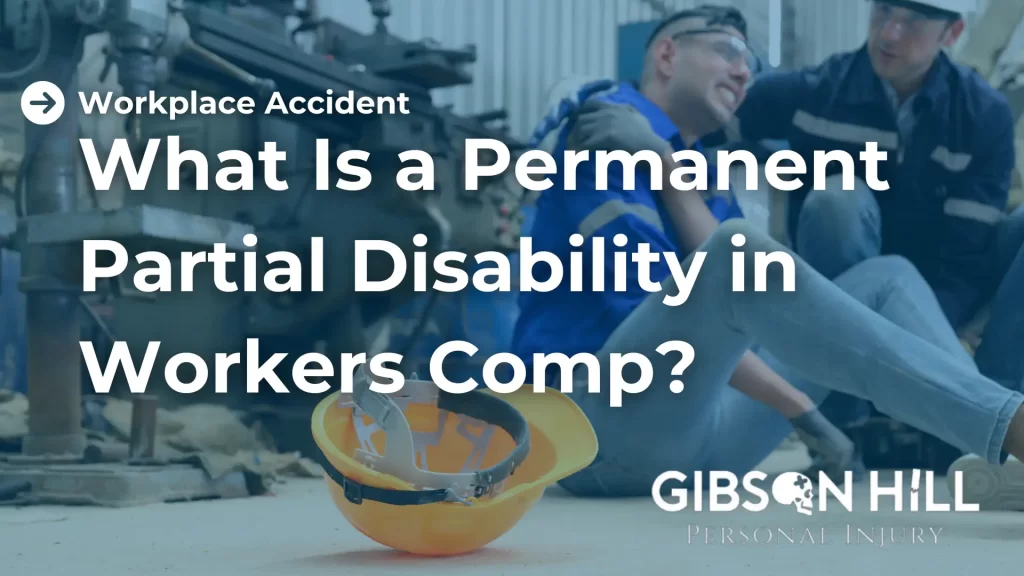
Suffering a work-related injury can be a life-altering experience, especially if it results in a permanent impairment. When you can no longer perform your job duties at total capacity, even after reaching maximum medical improvement (MMI), you may qualify for workers’ compensation benefits for a permanent partial disability.
Coping with the physical, emotional, and financial consequences of such an injury can be overwhelming, affecting not only your ability to work but also your overall quality of life. During such challenging times, legal support is crucial to ensure you receive the compensation and support you need to move forward. You need a seasoned Houston workers’ compensation lawyer on your side.
Understanding Permanent Partial Disability
A permanent partial disability is a lasting impairment resulting from a work-related injury or illness. However, unlike a permanent total disability, you can still work in some capacity with a permanent partial disability.
For instance, if you lose a finger in a workplace accident, you may not have full functionality of your hand. Nevertheless, you can still perform many work-related tasks, particularly if you undergo occupational therapy and learn adaptive techniques. The critical distinction is that you have a permanent impairment, but it does not entirely prevent you from working.
Determining Your Impairment Rating
To establish if you have a permanent partial disability, you must undergo an impairment rating evaluation. This evaluation typically occurs once your treating doctor believes you have reached MMI. MMI means that additional treatment will not likely improve your condition further.
An evaluating physician, who may or may not be your treating doctor, then assesses your condition and determines your impairment rating. This rating is a percentage that represents your level of whole-body impairment. The doctor uses guidelines from the American Medical Association (AMA) to calculate your impairment rating.
Factors that can influence your impairment rating include:
- The severity of your injury or illness
- The affected body part(s)
- The extent of your physical limitations
- The impact on your ability to perform activities of daily living
It’s important to note that your impairment rating is separate from your disability rating. Your disability rating represents how your impairment affects your ability to work. In some cases, you may have a high impairment rating but a low disability rating if your permanent limitations do not significantly impact your job duties.
Impairment Income Benefits in Texas
If you have a permanent partial disability, you may be eligible for impairment income benefits (IIBs) under the Texas workers’ compensation system. These benefits are designed to compensate you for your lasting impairment, even if you can return to work in some capacity.
The amount you receive in impairment income benefits depends on your impairment rating. Benefits equal 70% of your average weekly wage, subject to state minimum and maximum amounts. You can receive these benefits for a maximum of 401 weeks, which is approximately 7.5 years.
However, you will usually not receive benefits for the entire 401 weeks. Instead, you receive three weeks of benefits for every percentage point of impairment. For example:
- If your impairment rating is 10%, you can receive impairment income benefits for 30 weeks (10 x 3).
- If your impairment rating is 20%, you can receive benefits for 60 weeks (20 x 3).
- If your impairment rating is 50%, you can receive benefits for 150 weeks (50 x 3).
The maximum impairment rating is 99%, which would result in 297 weeks of impairment income benefits. Having a 100% impairment rating is rare, as that would indicate you have no functional capacity whatsoever.
Impairment income benefits differ from supplemental income benefits (SIBs), which you may be eligible for if your impairment rating is 15% or higher. Supplemental income benefits provide ongoing wage replacement if you are still experiencing a loss of earning capacity after you exhaust your impairment income benefits.
Permanent Partial Disability Settlement Amounts

In some cases, you may be able to negotiate a lump-sum settlement for your permanent partial disability. A workers’ comp settlement could provide financial stability and allow you to move forward after your workplace accident.
Factors that can affect your settlement amount include:
- Your impairment rating
- Your pre-injury wages
- Your age and education level
- Your ability to return to work in any capacity
- The strength of your case and supporting evidence
It’s important to understand that accepting a settlement typically means giving up your right to future workers’ comp benefits, including medical treatment.
Before accepting any settlement offer, it’s essential to have an experienced workers’ comp attorney review the offer and advise you on whether it is fair and reasonable. Your attorney can negotiate with the insurance company for a higher settlement amount if appropriate.
Get Help Seeking Benefits for Your Permanent Partial Disability
Dealing with a permanent impairment is challenging enough without also trying to figure out the workers’ compensation system. The attorneys at Gibson Hill Personal Injury can help you understand your rights and fight for the benefits you deserve.
We have extensive experience handling workers’ comp claims involving permanent partial disabilities. We can help you:
- Gather evidence to support your claim, including medical records and expert testimony
- Ensure your impairment rating is accurate and fair
- Negotiate with the insurance company for a favorable settlement
- Represent you at hearings and appeals if necessary
You don’t have to face this difficult time alone. Contact Gibson Hill Personal Injury today at 713-659-4000 or contact us online to schedule a free consultation with one of our knowledgeable workers’ compensation attorneys. We understand the challenges you’re facing after a work-related injury, and we’re here to provide the guidance and support you need to navigate the complexities of the legal process. Our team will work tirelessly to ensure you receive the benefits you deserve, helping you move forward with confidence and peace of mind. Don’t delay seeking the assistance you need – reach out to us today, and let us help you on the path to recovery.




